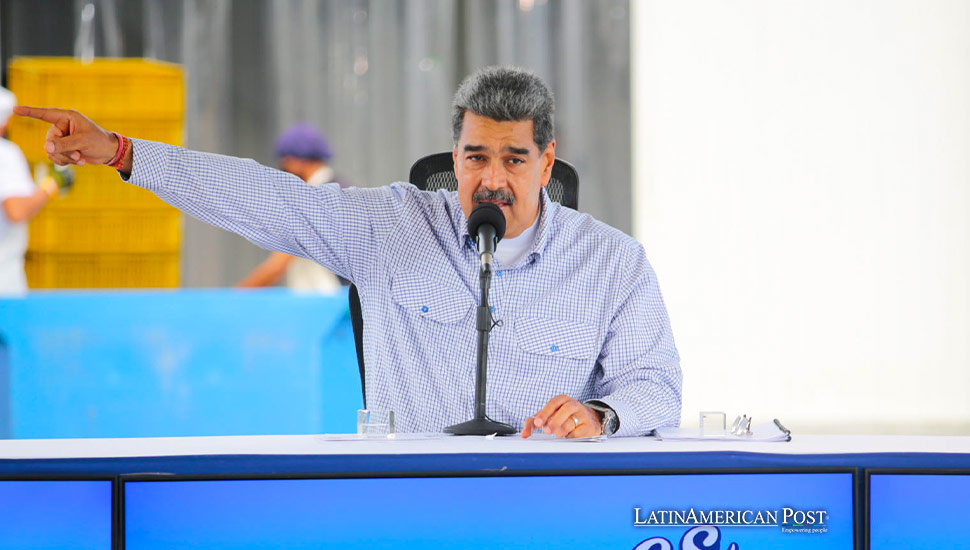Venezuelan Women Lead Research Projects with Government Funding

Venezuelan President Nicolás Maduro has approved $7.6 million to finance 210 research projects led by women in various sectors, including agro-food, pharmaceuticals, hydrocarbons, telecommunications, industry, and education, marking a significant step in promoting gender equality in science and technology.
In a notable move to boost scientific research and innovation, Venezuelan President Nicolás Maduro announced the approval of $7.6 million to fund 210 research projects spearheaded by women. This initiative aims to enhance critical sectors such as agro-food, pharmaceuticals, hydrocarbons, telecommunications, industry, and education. Maduro’s announcement was made during a televised event, highlighting the government’s commitment to supporting female researchers and fostering advancements in these fields.
President Maduro emphasized the importance of this funding, stating, “Today, we are delivering a total of $7,657,093, making the most of what we have and generating resources for research applied to technology, health, and education.” This substantial investment underscores the Venezuelan government’s dedication to promoting gender equality in science and technology.
Eight hundred twenty-one women are involved in these 210 projects, demonstrating a significant female presence in the country’s scientific community. Maduro noted that the funded projects span a range of disciplines: 70 are related to the agro-food sector, 41 to pharmaceuticals, 29 to social sciences, 15 to the dissemination of scientific and technological knowledge, 14 to hydrocarbons, 14 to the environment, 6 to industry, 10 to scientific seedbeds, and 1 to education.
Historical Context of Women in Latin American Science
Women’s role in science and technology in Latin America has been historically underrepresented despite their significant contributions. In recent decades, there has been a growing recognition of the need to support and promote women in STEM (Science, Technology, Engineering, and Mathematics). Initiatives like Venezuela’s current funding effort are part of a broader movement to address gender disparities and empower female scientists.
Latin America has seen various efforts to enhance women’s participation in science. Programs for scholarships, mentorship, and research funding have been implemented across the region. However, challenges such as gender biases, lack of funding, and limited access to resources have persisted. Venezuela’s initiative represents a crucial step in bridging this gap and creating more opportunities for women in research.
Focus Areas and Potential Impact
The projects funded under this initiative cover a wide array of critical areas. The agro-food sector, with 70 projects, is particularly significant for Venezuela, a country with a rich agricultural history but facing food production and security challenges. Research in this sector can lead to innovations that improve farming practices, increase crop yields, and ensure sustainable food sources.
With 41 projects, pharmaceutical research is another vital area, especially given the global emphasis on healthcare and the need for new treatments and medicines. Advances in this field can contribute to better healthcare outcomes and the development of locally produced pharmaceuticals, reducing import dependency.
Social sciences, the focus of 29 projects, play a crucial role in understanding and addressing societal issues. Research in this area can inform policies and programs that enhance social welfare and address challenges such as poverty, education, and healthcare access.
Environmental research, represented by 14 projects, is increasingly important in the context of climate change and ecological degradation. Innovations in this field can lead to better management of natural resources, conservation efforts, and sustainable development practices.
Communication and Public Engagement
Maduro stressed the need for a “communication effort” to showcase and detail these projects to the general population, with a particular emphasis on engaging young people. “There needs to be a communication effort through social media, institutions, and universities to share the examples of these research projects and applied technology to inspire the thirst for knowledge in the younger generations across the country,” he said.
Effective communication and public engagement are essential for maximizing the impact of these research projects. By sharing successes and innovations, the government can foster a culture of scientific curiosity and appreciation among the public, particularly among young people who are the future of the country’s scientific community.
Supporting Higher Education and International Collaboration
Maduro also highlighted the importance of providing scholarships and advanced training for scientists, both domestically and internationally. “All mechanisms must be activated to deliver scholarships for special postgraduate programs and higher education preparation for all scientists in the country, in national universities and institutions abroad,” he stated.
The emphasis on international collaboration, including connections with the BRICS countries (Brazil, Russia, India, China, and South Africa), reflects a strategic approach to integrate Venezuelan research globally. “The world of the 21st century has an open horizon for the people,” Maduro added, urging Venezuelan researchers to study abroad and engage in global knowledge cooperation.
International collaboration can give Venezuelan scientists access to advanced research facilities, cutting-edge technologies, and diverse perspectives. This exchange of knowledge and expertise is crucial for advancing scientific research and innovation.
Challenges and Opportunities
While this funding initiative marks a significant step forward, challenges remain. Venezuela’s economic situation has impacted various sectors, including education and research. Ensuring the effective utilization of funds and sustaining long-term support for research projects will be critical.
Moreover, the political climate and international relations can influence the success of such initiatives. Ensuring stability and fostering positive diplomatic relationships will be necessary to facilitate international collaborations and attract further investments in science and technology.
Approving $7.6 million to fund 210 research projects led by women marks a significant milestone in Venezuela’s efforts to promote scientific research and gender equality. This initiative not only empowers female researchers but also addresses critical areas such as agro-food, pharmaceuticals, environment, and social sciences, potentially bringing about substantial advancements.
As these projects progress, effective communication and public engagement will be key to inspiring the next generation of scientists and maximizing the research’s impact. By supporting higher education and fostering international collaboration, Venezuela can position itself as a leader in scientific innovation and contribute to global knowledge.
Also read: El cambio de Venezuela hacia las criptomonedas en medio de sanciones genera preocupación
This initiative reflects a broader trend in Latin America to enhance women’s participation in science and technology, addressing historical disparities and creating new opportunities for advancement. As Venezuela navigates the challenges and opportunities ahead, the commitment to research and innovation will be crucial for building a sustainable and prosperous future.




